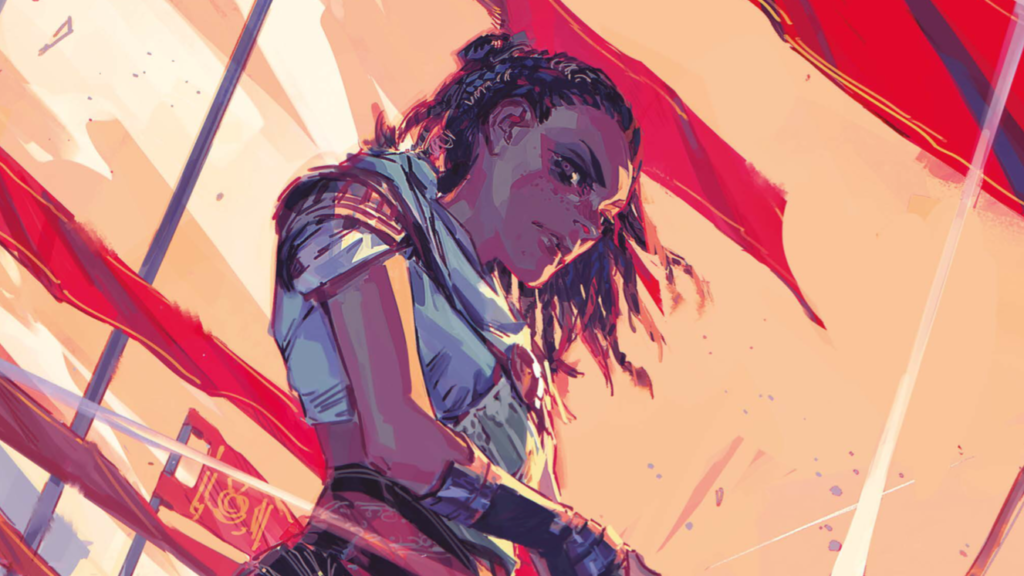
Comics Corner – Assassin’s Creed: Origins Special Edition Review
With Assassin’s Creed: Valhalla riding high in gamers’ minds, it’s a perfect time to explore the wider franchise of valorous murderers in comics form, which has explored characters and settings away from the central games. It would seem publisher Titan Comics agrees, with this week’s release of Assassin’s Creed: Origins – Special Edition.
The new collection brings the original 2018 mini series back into print in a 128-page volume, complete with a host of fascinating back matter – art process commentary, showing how pages evolve from rough pencils to final colours, a cover gallery, and interviews with writer Anthony Del Col and artist PJ Kaiowa. All fine additions – but does the core story warrant attention?
Thankfully, yes, though not without caveats. This is very much a sequel to Assassin’s Creed: Origins the game, focusing on Aya – wife of in-game protagonist Bayek, and founder of the Hidden Ones, precursors to the Assassin Brotherhood – after she has left Egypt for Rome. The story demands some understanding on the readers’ part of who Aya is, how she came to be in Rome, and the pain and weight of what she left behind.
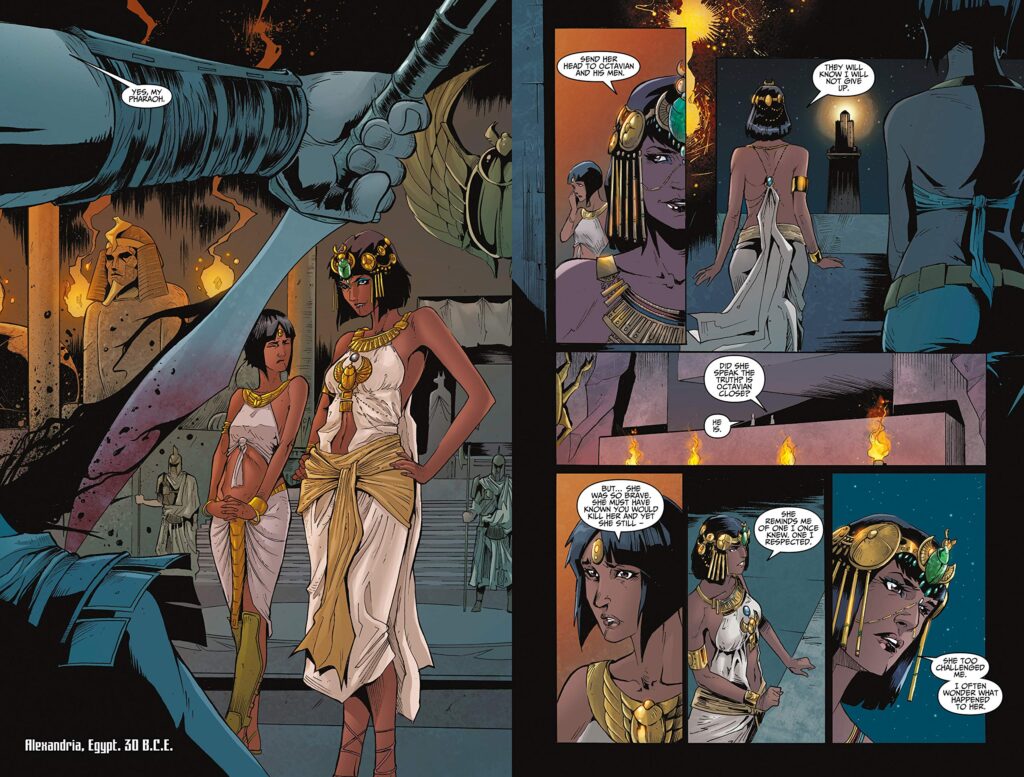
Readers who lack that cursory understanding of the game may be a bit lost jumping in here, something not helped by the story running across two time periods – a framing sequence in 30BCE, focusing on Cleopatra and her son Caesarion at the end of the Battle of Alexandria, and flashbacks to 44BCE, focusing on Aya in Rome. Conversely though, hardcore fans of Ubisoft’s titles may find themselves confused by some overlapping continuity, as the key event here – Aya’s assassination of Julius Caesar – clashes slightly with established canon.
What’s particularly interesting about Origins-the-comic though is that it reflects on the real-world implications of assassinating prominent figures in ways that the actual Assassin’s Creed games themselves rarely do. When Aya kills Caeser – publicly, in the Roman Senate, against her own better judgement – it doesn’t result in a joyous citizenry exuberant that a dictator has been removed from power, but rather a fractious powderkeg of a city where political rivalries threaten to explode on the streets.
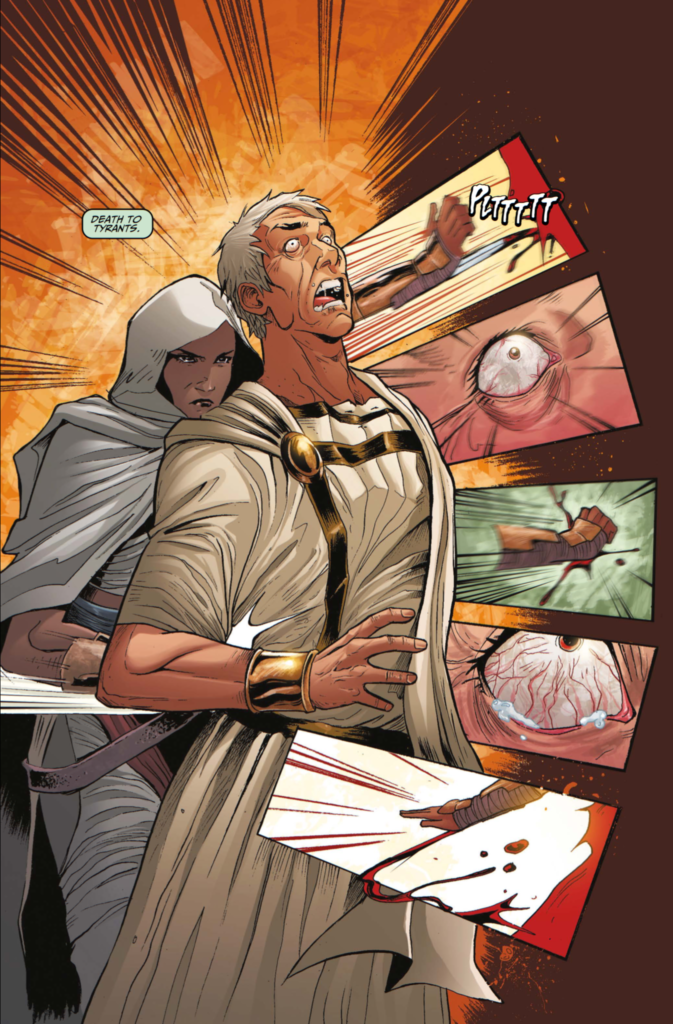
That energy fills the rest of the series, with Aya clashing against or partnering with other historical figures such as Mark Anthony and Brutus, while the whole of Rome turns on her. It feels as if Del Col is exploring precisely why the Assassins must work from the shadows, and in that sense Origins serves a valuable purpose within the wider franchise.
It’s also great to see more Assassin’s Creed media with female leads front and centre. While Ubisoft has made the player character optionally male or female in Odyssey and Valhalla, too few of the actual games have shown us history from a woman’s perspective. Having two primary characters as the focus here – Aya and Cleopatra, former friends now with very different approaches and philosophies – delivers something the games themselves never have.
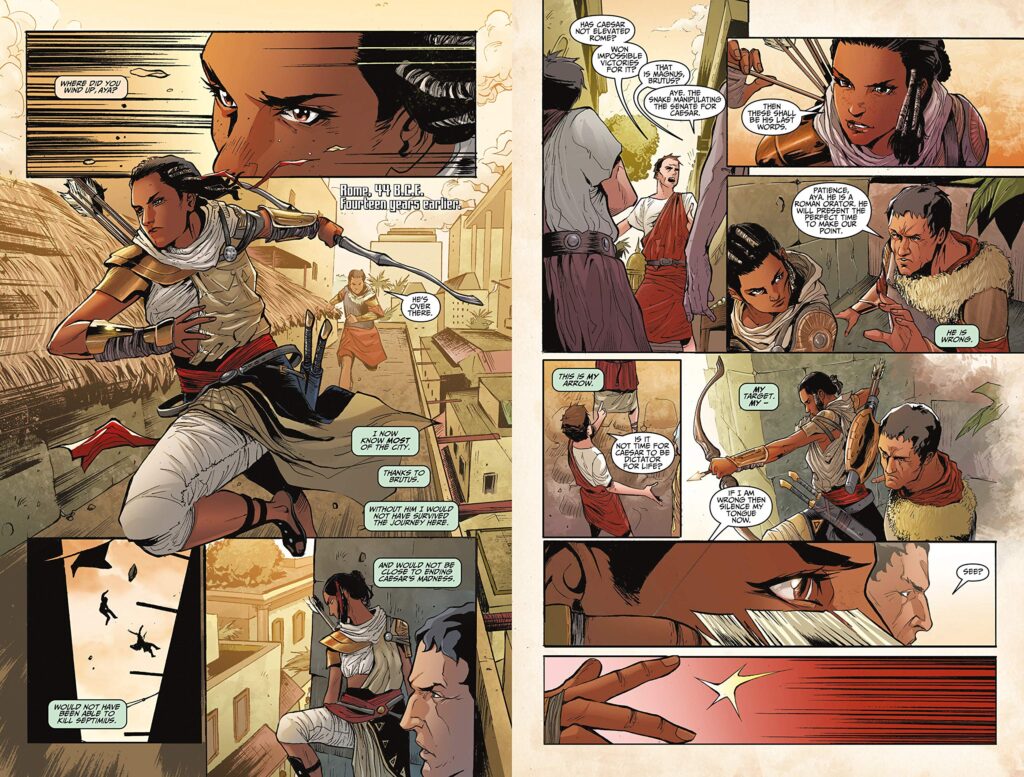
Visually, Kaiowa’s pages are beautiful, filled with a kinetic energy when needed – Aya running through the streets of Rome, above, or dropped into a gladiatorial arena to face starved, crazed hippos, as below, all brought to greater life by colourist Dijjo Lima – but also knowing when to pause and give a scene weight and permanence.
This also gives the comic a certain gravity that the games themselves can lack. When you’re traipsing around the ancient world yourself, dispatching guards from the shadows, you rarely stop to consider the strings of murders you’re commiting – they’re little more than digital dolls in your way. In the comics, you’re a passive observer, and the permanence of ink on the page brings home the horror of the action.
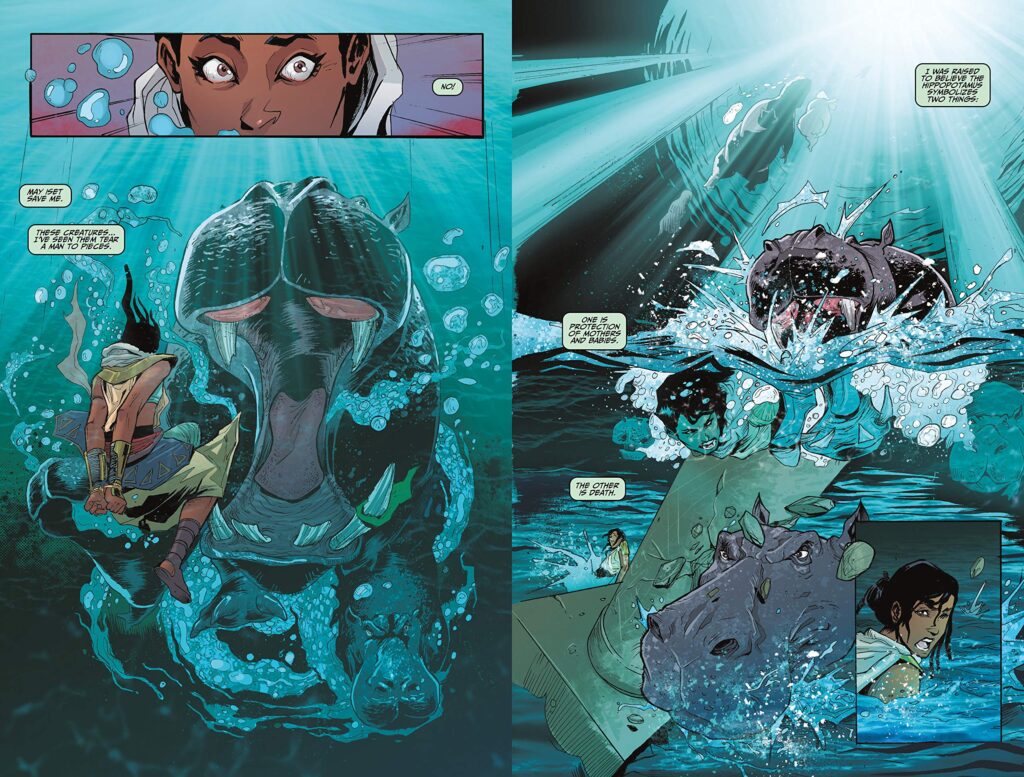
If you’re fresh off playing Valhalla, leaping back to Origins’ Egyptian and Roman settings may feel a little jarring, even if you’re well versed in the original game. Yet Origins-the-comic (which, side note, really needed a subtitle to distinguish it) still stands as an excellent slice of Assassin’s Creed lore, centred on a character that always deserved more focus.
Like the games themselves, Titan’s various Assassin’s Creed comics hop about history, with characters and settings scattered across the centuries. This collection shows how fascinating and important a character Aya is though, and even though we’re a couple of years removed from this story’s original publication, hopefully it’s not the last we’ll see of her in comics form.





